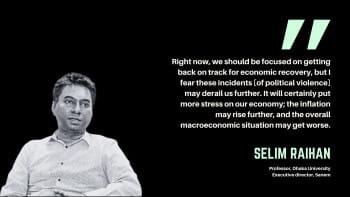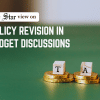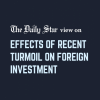We must remove barriers to investment flow

The steady development journey that Bangladesh has been on for more than a decade smoothed the path for the country to become a developing nation by 2026. This progress has come on the back of a consistent investment flow to different sectors, among other things. Unfortunately, Bangladesh has been struggling to expand its volume of private and foreign direct investment (FDI), a fact that has been again highlighted by the apex body of foreign investors in the country.
The Foreign Investors Chamber of Commerce and Industry (Ficci), which represents more than 200 investors, unveiled a book on Sunday that underscores how our existing tax system creates an unfavourable investment environment. According to Ficci, our tax system is not aligned with the global standards; in fact, our tax policies, although designed to support growth, are riddled with contradictory regulations, lack of clarity, ineffective tax incentives, lack of ease in resolving tax disputes, and a complicated process of claiming tax benefits. Then there is the inherent problem of corruption and bureaucratic complications.
All these work as deterrents against attracting new and retaining old investments, including FDI. Over the past six months in particular, investment flow has slowed down enough to raise an alarm among policymakers and the business community. The dollar crisis and an unstable political environment ahead of the general election are major challenges for investment growth as well. The overall situation casts a dark shadow on the state of our already struggling economy.
Time and again—especially since our economic growth hit a snag, thanks to some global events disrupting world economy as well as our inability to evolve and recover—experts have pointed out the need for a modernised and reformed tax system. Other developing economies are already ahead of us in that regard. They revised their tax frameworks to facilitate smooth investment flow. Our policymakers must take the hint and do what needs to be done to boost investors' confidence. Ficci has offered 29 recommendations that can be implemented over short, medium and long terms to improve our investment environment and expand its scopes; our government can use those as a guideline.
Investment, especially FDI, drives economic growth and, by extension, job creation, higher incomes and better standards of living. To help our economy to overcome the current crisis, boosting investment flow through prudent and timely policy changes is vital. We strongly urge the government to recognise that, and take prompt actions to get us back on track for recovery.


 For all latest news, follow The Daily Star's Google News channel.
For all latest news, follow The Daily Star's Google News channel. 









Comments